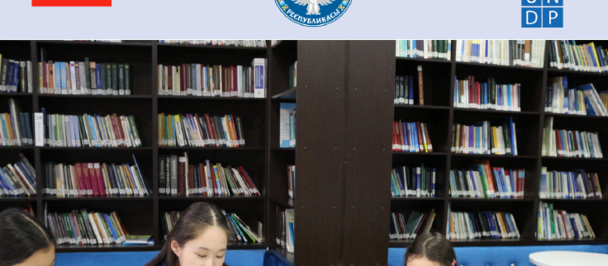Driving E-Commerce Growth in Kyrgyzstan: How UNDP Boosts Digital Business Capacity
May 7, 2025

E-commerce is a driving force behind inclusive and sustainable economic growth. In today’s rapidly digitizing global market, small and medium-sized enterprises (SMEs) must adapt, or risk being left behind. For emerging economies like Kyrgyzstan, where SMEs account for most of the employment and play a vital role in regional development, unlocking access to digital markets is critical.
UNDP, with support from the Government of Finland, launched the “Janyration Sanarip” incubation programme to equip Kyrgyz entrepreneurs with the tools, knowledge, and support needed to transition from traditional business models to digital-first operations, enabling them to grow, scale, and compete in the e-commerce space. This effort is the part of the UNDP's support for digital transformation in Kyrgyzstan in line with the country's National Development Strategy 2018–2040 and the Concept of the Digital Transformation 2024-2028, aiming to foster inclusive economic growth and bridge the digital divide.
“Digital transformation is a catalyst for inclusive economic development. By bridging the digital divide, especially for women-led, youth and rural businesses, we are enabling small enterprises to tap into new markets, generate decent jobs, and contribute to a more resilient and equitable economy,” said Alexandra Solovieva, UNDP Resident Representative.

At the training
Over the course of 16 weeks, the programme supported 43 entrepreneurs—more than half of them women—in developing tailored digital transformation strategies to strengthen every stage of their value chain. Through expert-led training, one-on-one mentoring, mastermind sessions, and hands-on workshops, participants gained practical skills in digital marketing, logistics optimization, online sales platforms, and customer relationship management. As a result, many businesses reported significant improvements: one entrepreneur increased sales by 40% within a month by applying digital analytics, while others diversified their product lines, expanded into new markets, and improved packaging and branding to increase online conversion rates.
The programme also focused on ensuring long-term impact. Each entrepreneur followed a personalized roadmap, translating newly acquired skills into tangible business improvements. UNDP brought in 22 experienced practitioners from across the digital economy to guide participants through challenges specific to their business models. Topics ranged from using Amazon, eBay, and TikTok Shop to streamlining order fulfillment and adopting automated client engagement tools. To encourage innovation and scale-up, participants pitched their growth plans at a Demo Day, where five entrepreneurs received seed funding to invest in equipment, digital tools, and marketing.
Almagul Kushtarbekova, founder of Healthy Bulion, shared: “This programme was a real turning point. We didn’t just learn tools like TikTok, Ads Manager, taplink, and website development, we reimagined how to grow our brand. The online format allowed us to learn while running our business. The personal coaching and mastermind sessions gave us real insights and actionable solutions.”

On the left is Almagul Kushtarbekova, founder of Healthy Bulion
Importantly, the initiative went beyond training. It fostered an ecosystem of digital entrepreneurship in Kyrgyzstan by building confidence, encouraging peer exchange through mastermind sessions, and aligning SME capabilities with real market opportunities. From clothing producers exploring influencer marketing to food entrepreneurs entering regional marketplaces, participants represented a broad spectrum of industries, unified by their ambition to build resilient, future-ready businesses.
The e-commerce value chain drives inclusive economic development by creating pathways for SMEs—especially women-led enterprises—to thrive in the digital economy. By addressing structural barriers and equipping entrepreneurs with practical tools, the programme helps reduce regional disparities, promote decent work, and position Kyrgyzstan’s local producers to compete in global value chains. As digital transformation becomes central to sustainable development, scalable initiatives like this offer a blueprint for economic empowerment and long-term resilience.

 Locations
Locations



